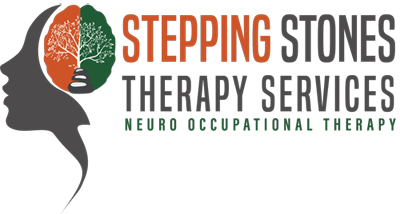Returning to work after a brain injury brings many questions and worries.
Vocational rehabilitation gives you the right support to plan this step safely. It helps you build confidence and manage health challenges so work stays realistic and sustainable.
If you’re feeling unsure or overwhelmed, you don’t have to plan this alone. Reach out to Stepping Stones today and let’s take the first steps together towards a return to work that truly supports your health and future.
Read more about me and my work here.
What Does Vocational Rehabilitation Involve?
Vocational rehabilitation is part of occupational therapy. It focuses on work and career support after an injury or long-term condition.
Your occupational therapist works with you to understand what you can do now and what you need at work. Together, you might plan a gradual return to work, suggest changes to your role, or find new ways to manage memory or stress.
Other professionals may help too, such as doctors, occupational health advisers and Allied Health Professionals such as physiotherapists or speech therapists.
More About Vocational Rehabilitation
Vocational rehabilitation is about more than just getting back to work. It’s a bridge between your recovery and a work life that feels manageable and meaningful.
For many people, work is part of their identity and daily routine. After a brain injury, you may find that tasks feel harder, you get tired more quickly or you worry about keeping up. Vocational rehabilitation helps you face these changes with a clear plan and realistic steps.
This support can include workplace assessments to see what changes would help. It may mean building new coping strategies for memory or fatigue. It often involves regular check‑ins to adjust your plan as you make progress.
Good vocational rehabilitation keeps your health first. It recognises that returning too soon, or without the right plan, can set you back. Instead, it focuses on steady progress so you feel safe and confident in your role, whether you stay in the same job or explore something new.
Why It Matters for Your Health and Career
Many people want to return to work after a brain injury but worry about health setbacks or work stress. Going back too soon or without a plan can lead to burnout.
Vocational rehabilitation lowers this risk. It helps you agree on realistic hours, explain your needs to managers and find a balance between work and recovery.
The goal is simple: protect your health and help you feel confident at work again.
How It Helps Your Employment Goals
This service is flexible. You may want to keep your current job or explore a new role. You might even think about changing career completely.
Your therapist will help you understand what suits you now and what feels manageable long-term. This could include new training, flexible working or supported employment.
Who Can Benefit?
This approach is for anyone returning to work after a brain injury or living with other conditions that affect work. It’s also helpful for people managing fatigue, mental health challenges or complex medical conditions.
If you want to plan a return that works for your life and health, vocational rehabilitation can help you take each step with confidence.
Read more about how I can help with returning to work after a brain injury.
Case Study: Finding a New Work Path After Brain Injury
Wendy came to Stepping Stones after a car accident left her with a brain injury. She wanted to work again but felt anxious about whether she could cope.
Through vocational rehabilitation, she built her confidence step by step. Together, we explored her strengths, found a local volunteering role and practised strategies for managing fatigue. Over time, Wendy felt ready to apply for paid work again — with a clearer sense of what felt realistic for her health and daily life.
Let’s Talk
If you’d like gentle, practical support to return to work in a way that fits your health and life, I’m here to listen. A free 15-minute phone chat can help you see what might work for you.

